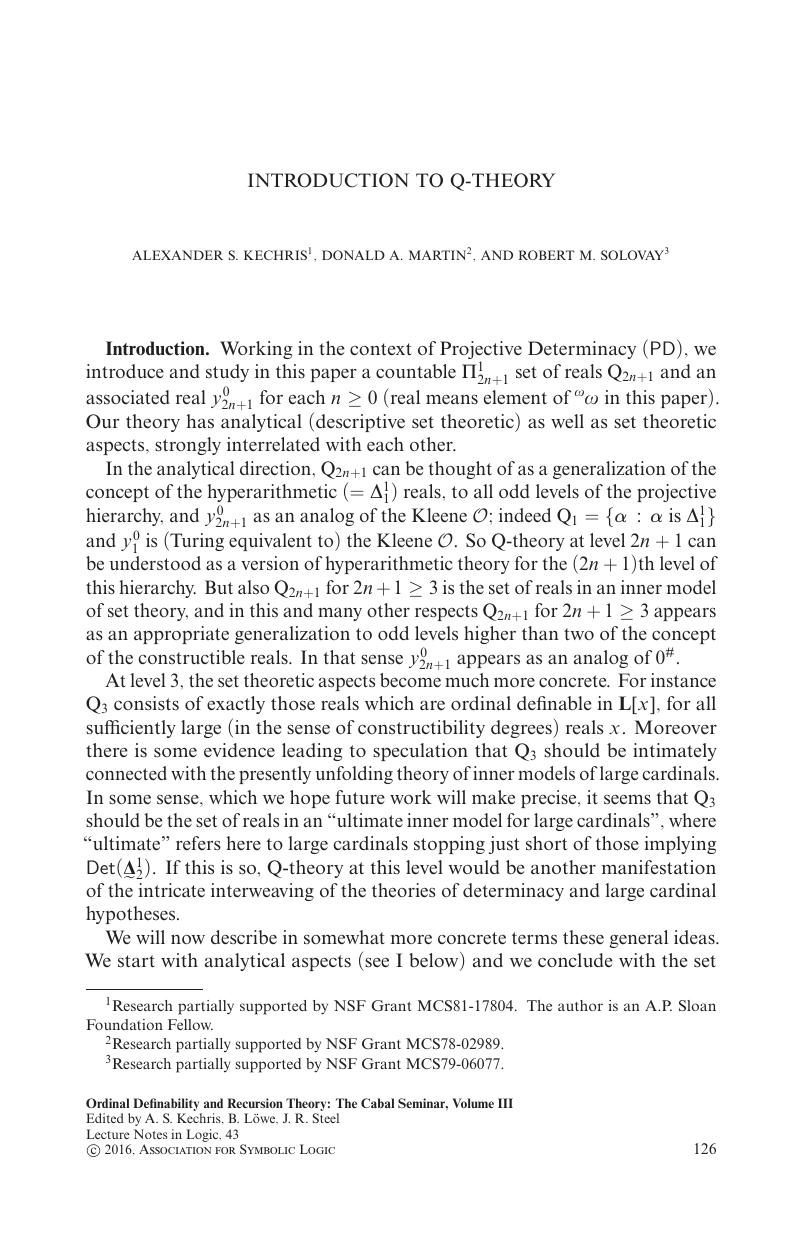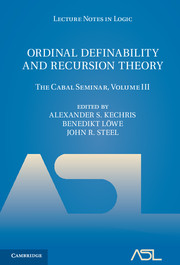Book contents
- Frontmatter
- Contents
- Preface
- Original Numbering
- PART V HOD AND ITS LOCAL VERSIONS
- Ordinal definability in models of determinacy. Introduction to Part V
- Partially playful universes
- Ordinal games and playful models
- Measurable cardinals in playful models
- Introduction to Q-theory
- On the theory of Π13 sets of reals, II
- An inner models proof of the Kechris–Martin theorem
- A theorem of Woodin on mouse sets
- HOD as a core model
- PART VI RECURSION THEORY
- Bibliography
- References
Introduction to Q-theory
from PART V - HOD AND ITS LOCAL VERSIONS
Published online by Cambridge University Press: 05 December 2015
- Frontmatter
- Contents
- Preface
- Original Numbering
- PART V HOD AND ITS LOCAL VERSIONS
- Ordinal definability in models of determinacy. Introduction to Part V
- Partially playful universes
- Ordinal games and playful models
- Measurable cardinals in playful models
- Introduction to Q-theory
- On the theory of Π13 sets of reals, II
- An inner models proof of the Kechris–Martin theorem
- A theorem of Woodin on mouse sets
- HOD as a core model
- PART VI RECURSION THEORY
- Bibliography
- References
Summary

- Type
- Chapter
- Information
- Ordinal Definability and Recursion TheoryThe Cabal Seminar, Volume III, pp. 126 - 199Publisher: Cambridge University PressPrint publication year: 2016



